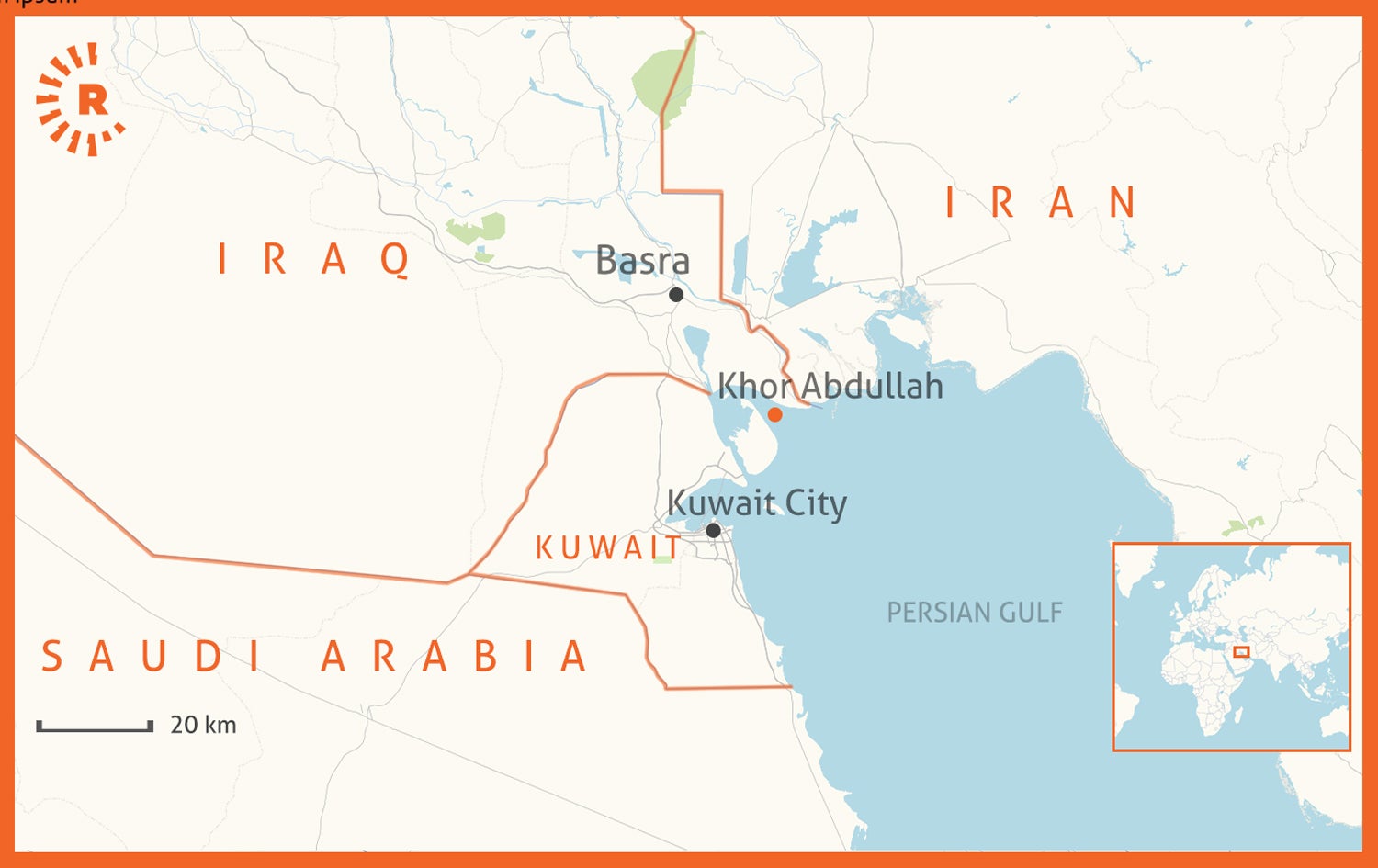ERBIL, Kurdistan Region – Iraq is accusing Kuwait of violating its water border.
The Iraqi government sent messages to both the UN Secretary General and UN Security Council on Tuesday claiming Kuwait is violating its maritime border in southern Iraq, according to a statement by the Iraqi Ministry of Foreign Affairs. Iraq and Kuwait are in talks over Kuwait building ports at the Khor Abdullah border point, the ministry said.
“We have been in talks with Kuwait regarding the situation in Khor Abdullah, since Iraq believes that Kuwait is violating Iraqi territories,” the statement read. “Iraq decided to transfer the talks to the UN Security Council (UNSC) and inform the UN Secretary General in order to resolve the issue.”
Khor Abdullah is the border waterway that separates Iraq from Kuwait, and is the gate for most of Iraq’s oil exports flow. It is one of several shared strategic border crossings between Iraq and Kuwait, with others including Safwan in the southern city of Basra and the Um Qasr port south of Basra.
The Khor Abdullah waterway has been an outstanding issue between Iraq and Kuwait for decades, including during the reign of former President Saddam Hussein. After Hussein’s invasion of Kuwait in 1990, Khor Abdullah fell under the mandate of the UN under Resolution 833.

In January 2013, Iraq reached an agreement with Kuwait to jointly navigate and govern Khor Abdullah waterway. The agreement calls for a joint commission to provide security to Khor Abdullah, as well as to maintain and organize movement within the inlet.
Aliya Nsaif, an Iraqi member of parliament who has opposed the agreement regarding Khor Abdullah for years, released a statement on Tuesday praising the Iraqi government for the “long awaited step” of accusing Kuwait of violating Iraqi territory.
“We have been waiting for this step by the Iraqi government for a long time,” Nsaif said in the statement. “Kuwait has built ports in Iraqi territories, and that is a clear violation of Iraq’s territories and also of international law.”
Some Kuwaiti parliamentarians were dismissive of the Iraqi foreign ministry’s move, though.
“The complaint by the government of Iraq against Kuwait is provocative behavior and is not surprising from our neighbor to the north,” member of the Kuwaiti parliament Osama Shahin said, according to the Kuwaiti media outlet Alrai.
Iraq’s relations with Kuwait were harmed during Hussein’s regime. The dictator often referred to Kuwait as the 19th province of Iraq and invaded the energy-rich nation on the Persian Gulf in 1990 following Iraq’s war with Iran in what is known as the Gulf War.
A US-led coalition drove the Iraqis out of Kuwait as Hussein’s forces set Kuwaiti oilfields ablaze on their way out in 1991.
However, since Hussein’s regime fell in 2003 following the US invasion, Iraq and Kuwait have improved relations. Baghdad has been repaying billions of dollars in debts to Kuwait for the Gulf War. Additionally, both countries are working to repatriate bodies of Kuwaitis killed by Iraqi forces during the conflict, which are believed to be buried in mass graves in southern Iraq.
Kuwait was one of the first destinations of Iraqi high-level officials when the new Iraqi cabinet was formed late last year. Speaker of the parliament Mohammed Halbousi’s first visit abroad was to Kuwait in September 2018 and Iraqi President Barham Salih visited two months later.
Kuwait’s ruling Emir Sheikh Sabah al-Ahmad al-Jaber al-Sabah also visited Iraq on July 24 to discuss several issues.
Wealthy Kuwait hosted a conference in February 2018 to raise funds to help rebuild Iraqi cities following the war against the Islamic State (ISIS).










Comments
Rudaw moderates all comments submitted on our website. We welcome comments which are relevant to the article and encourage further discussion about the issues that matter to you. We also welcome constructive criticism about Rudaw.
To be approved for publication, however, your comments must meet our community guidelines.
We will not tolerate the following: profanity, threats, personal attacks, vulgarity, abuse (such as sexism, racism, homophobia or xenophobia), or commercial or personal promotion.
Comments that do not meet our guidelines will be rejected. Comments are not edited – they are either approved or rejected.
Post a comment